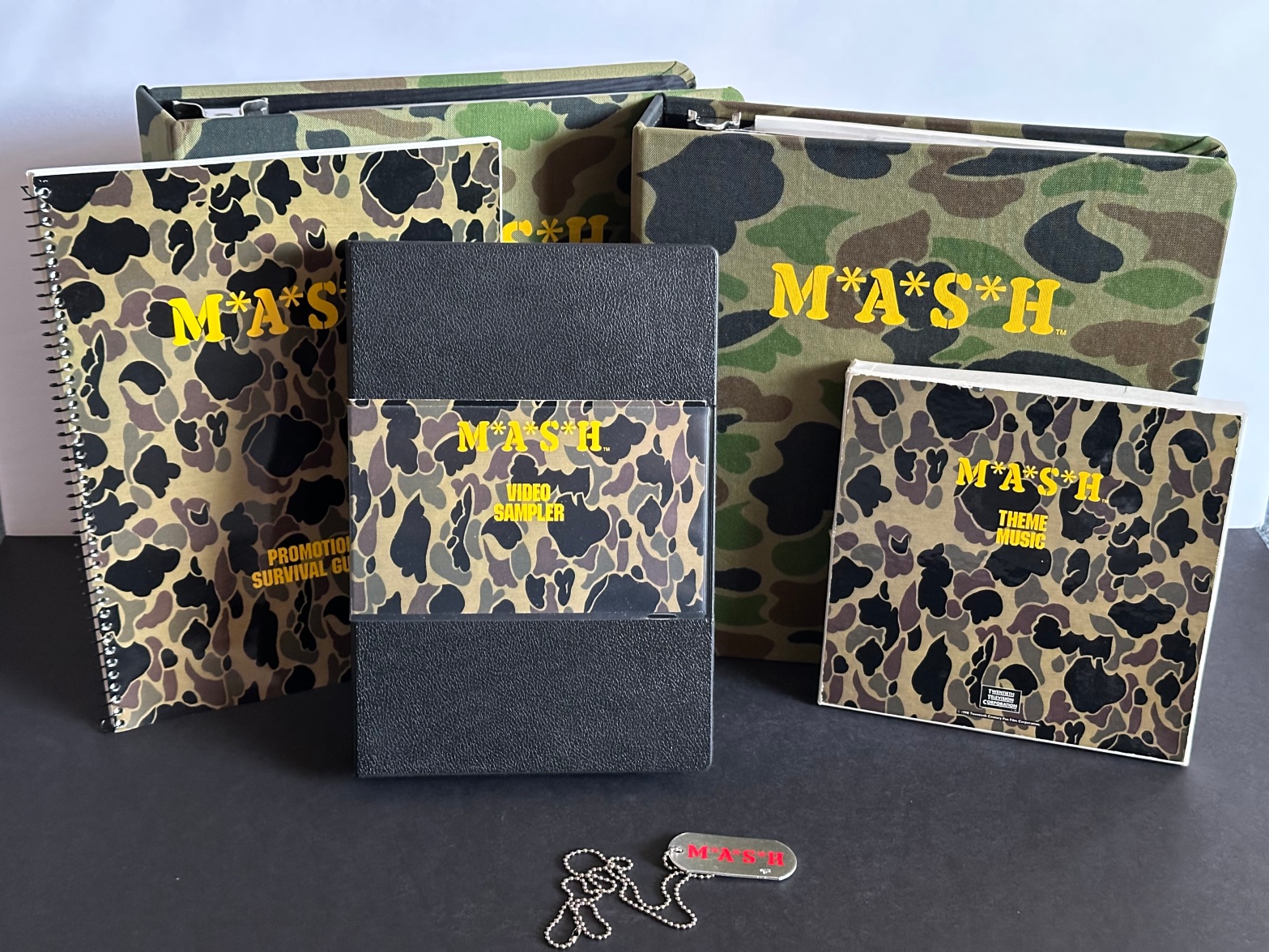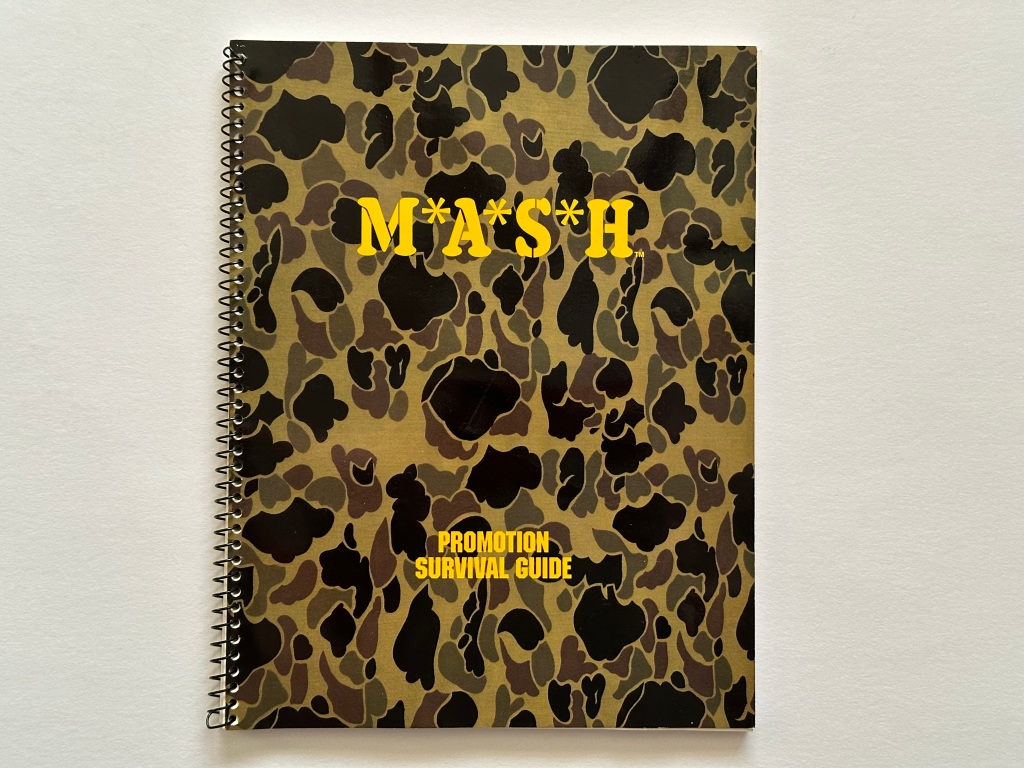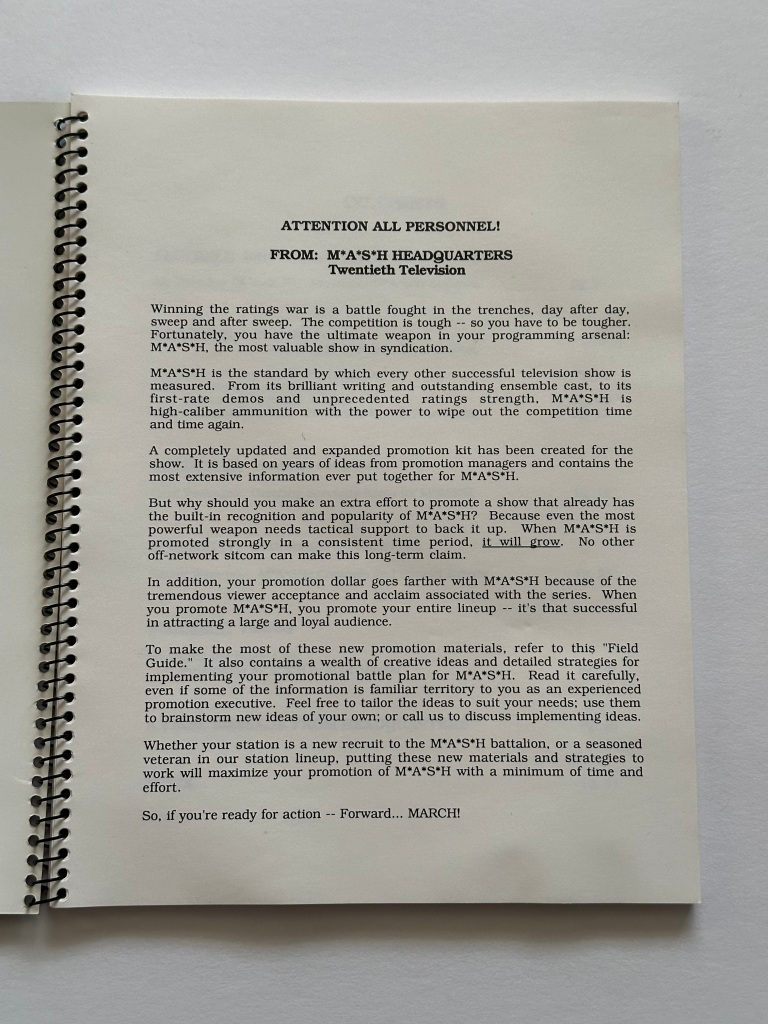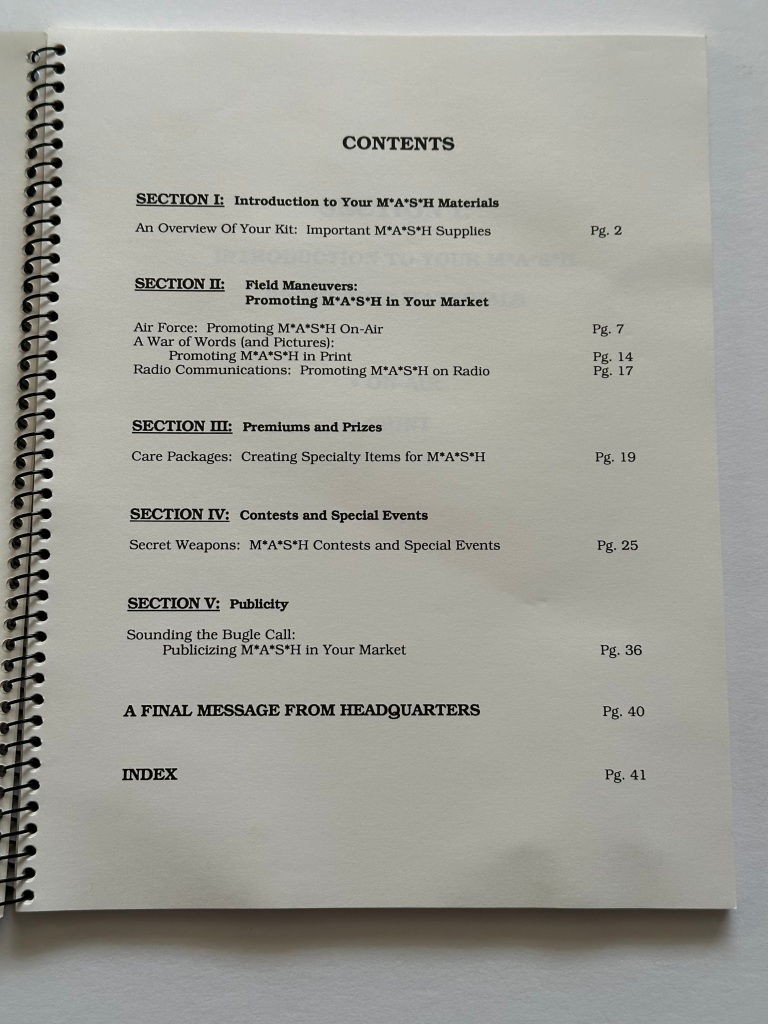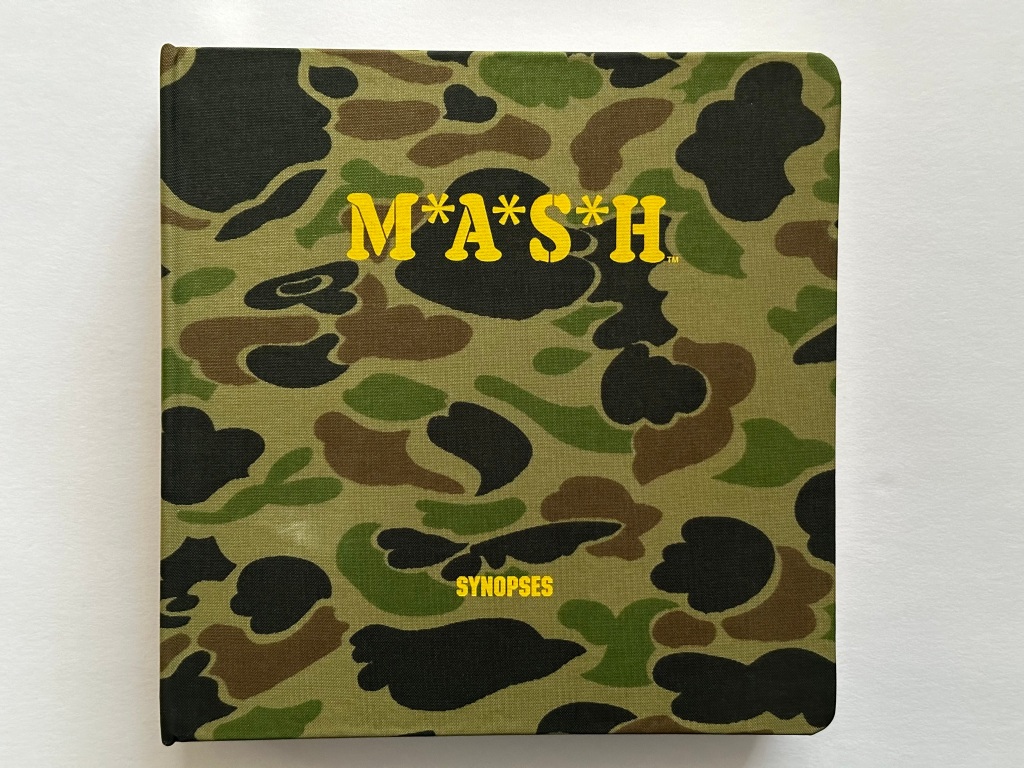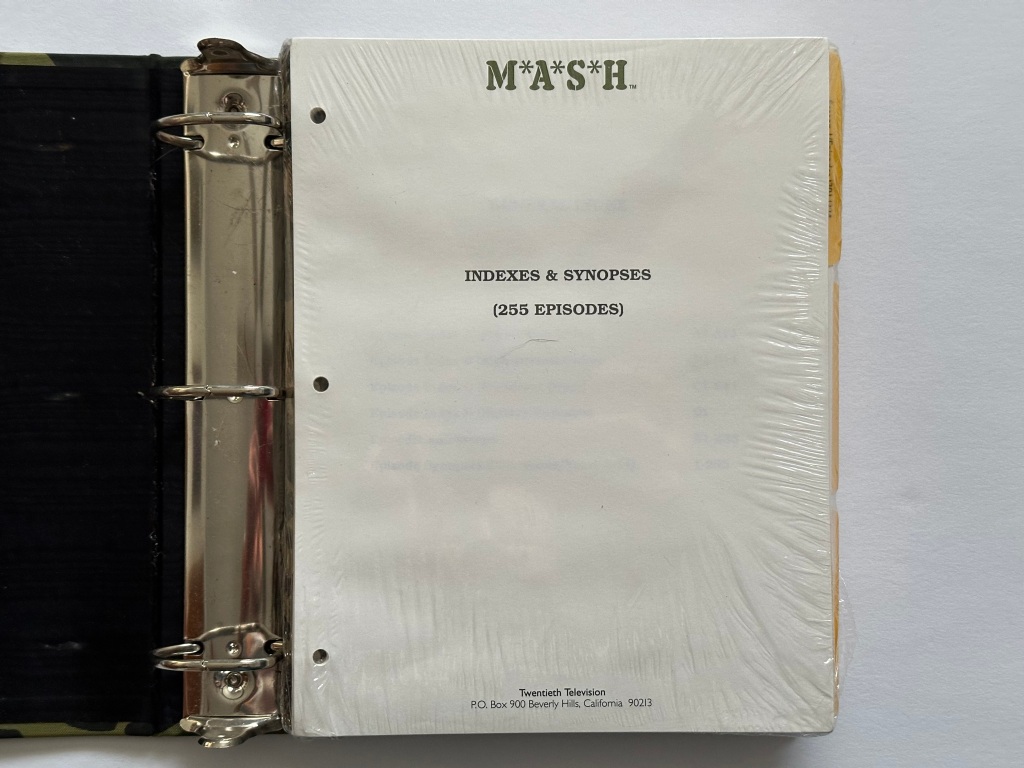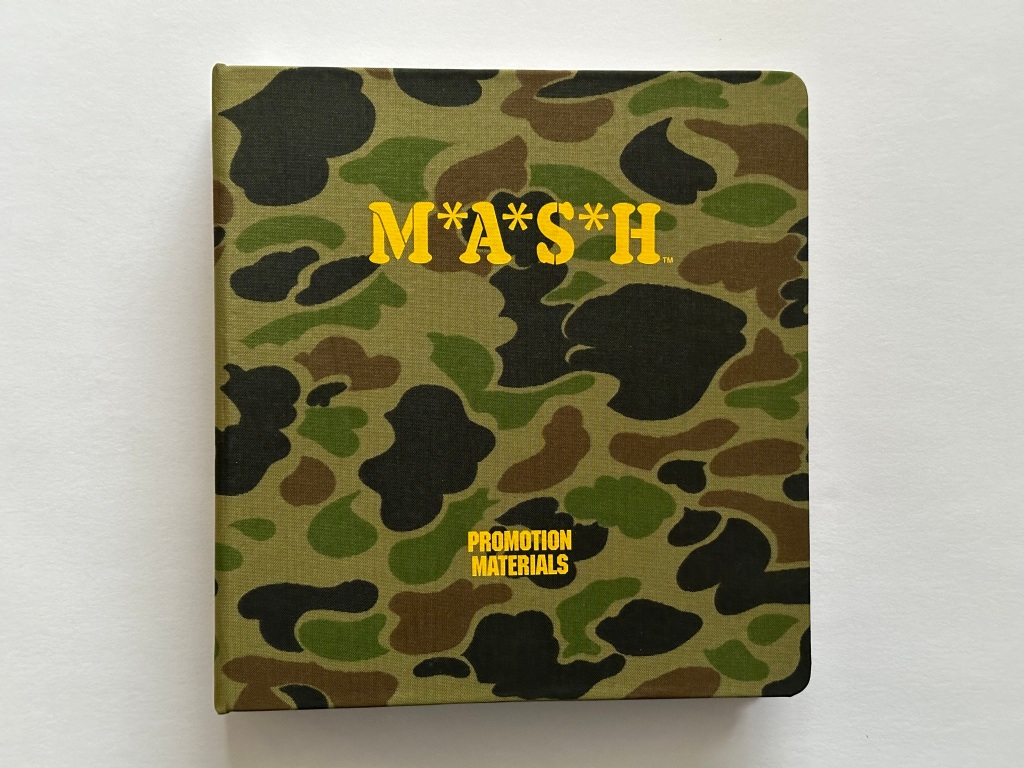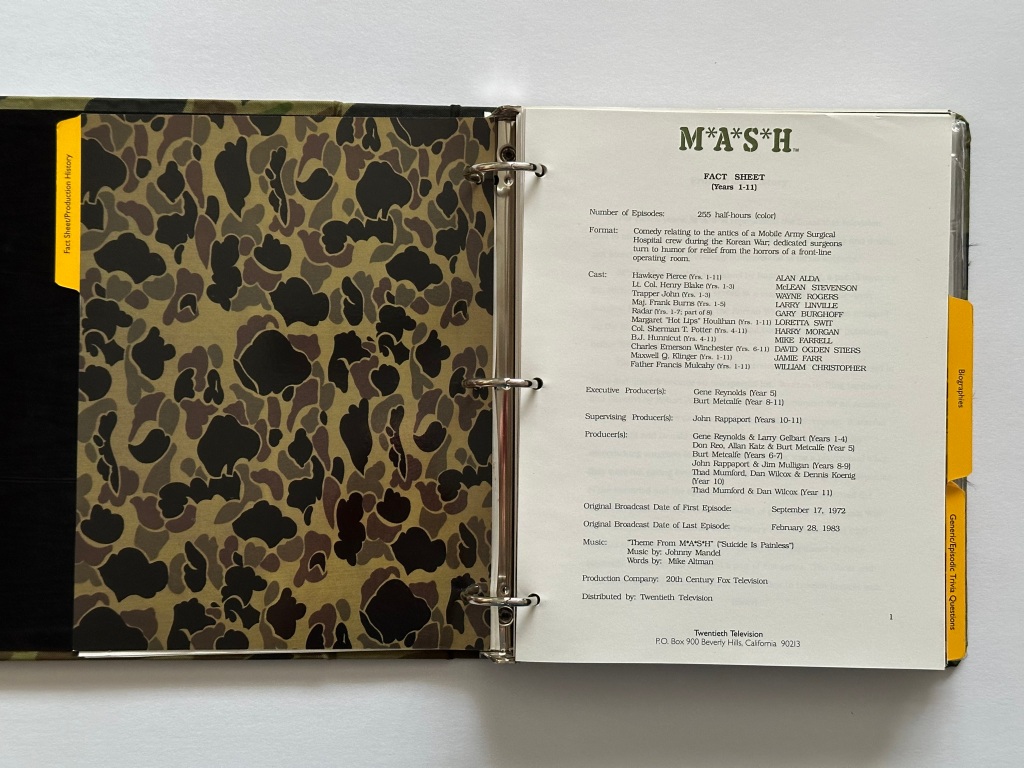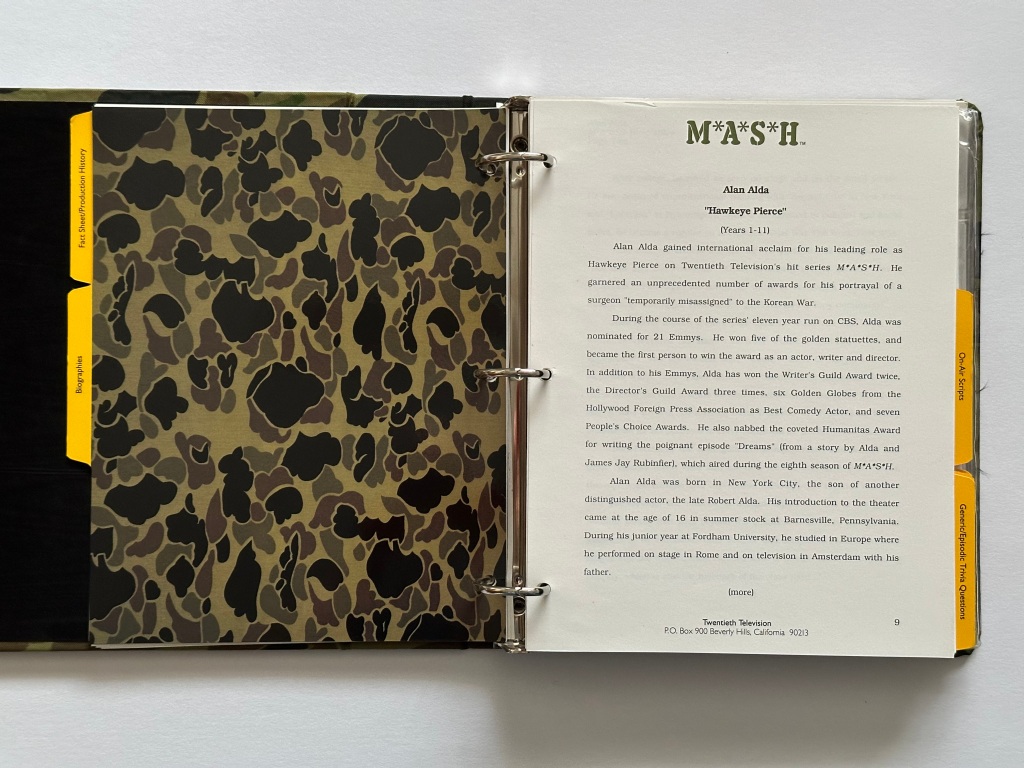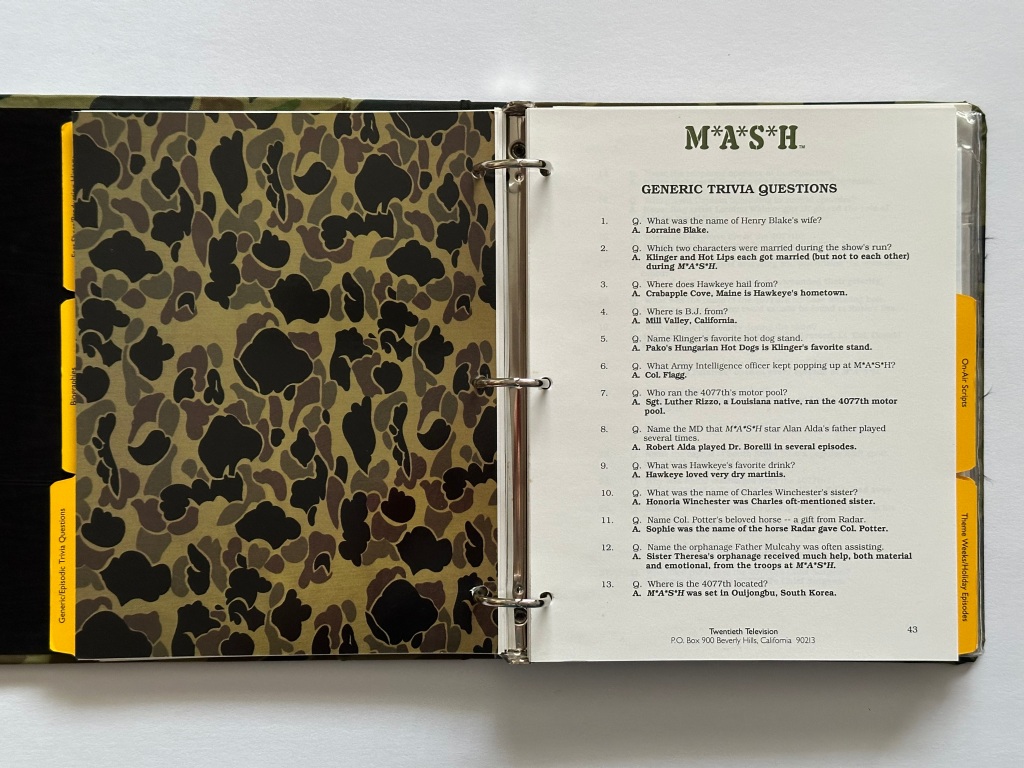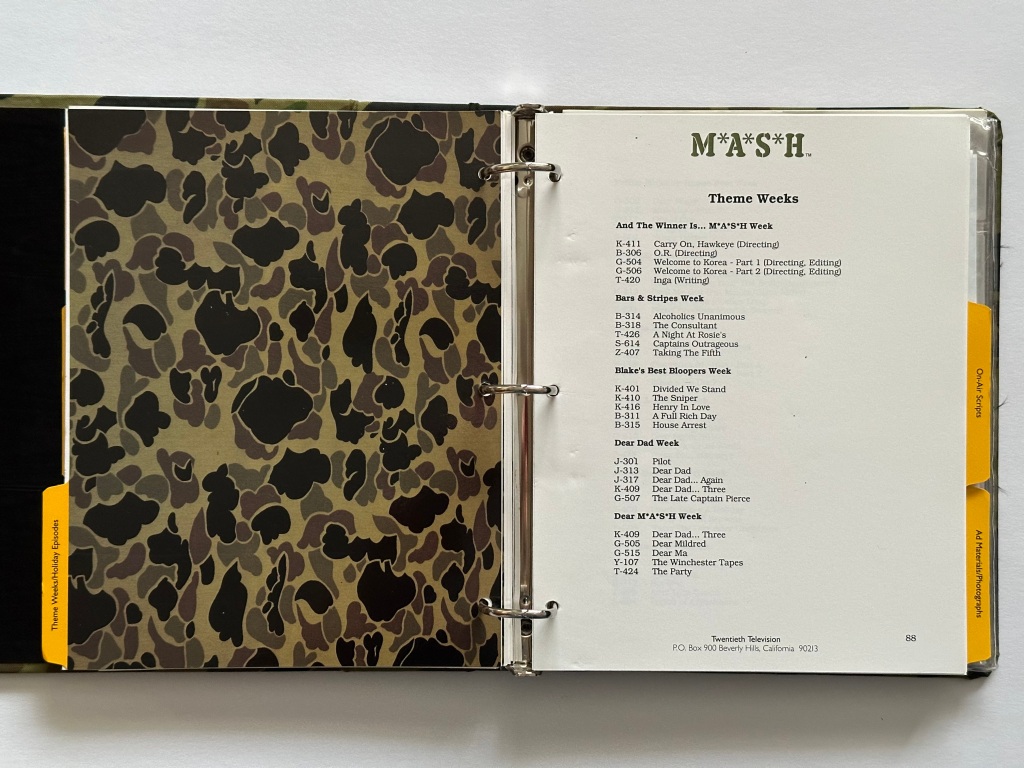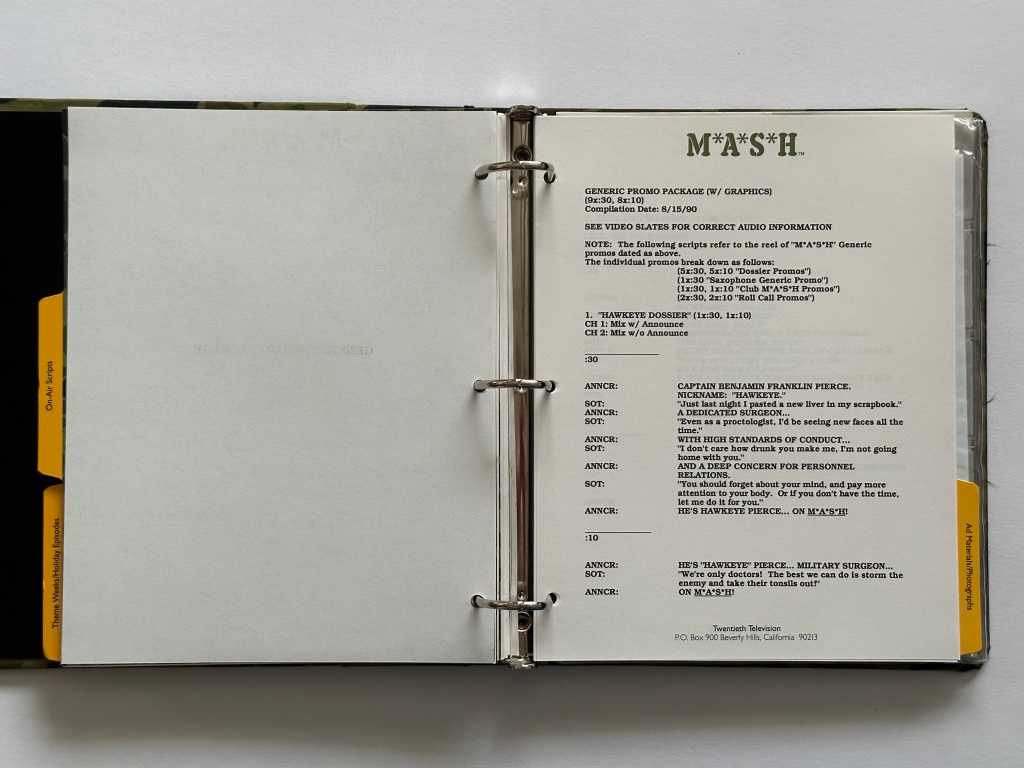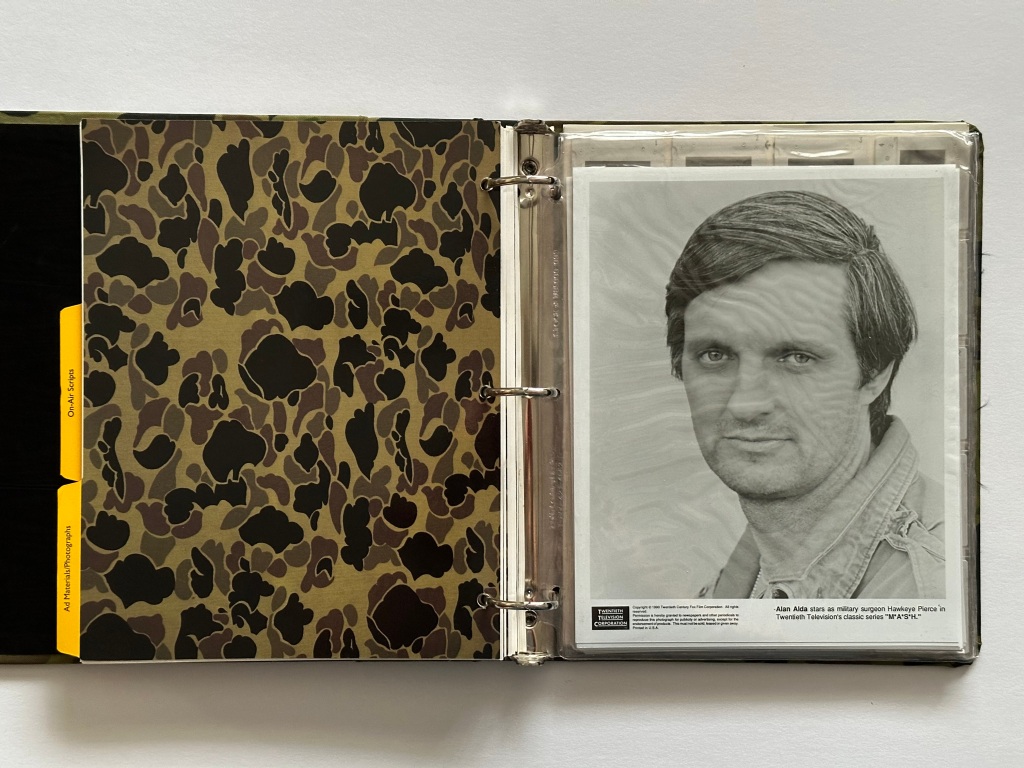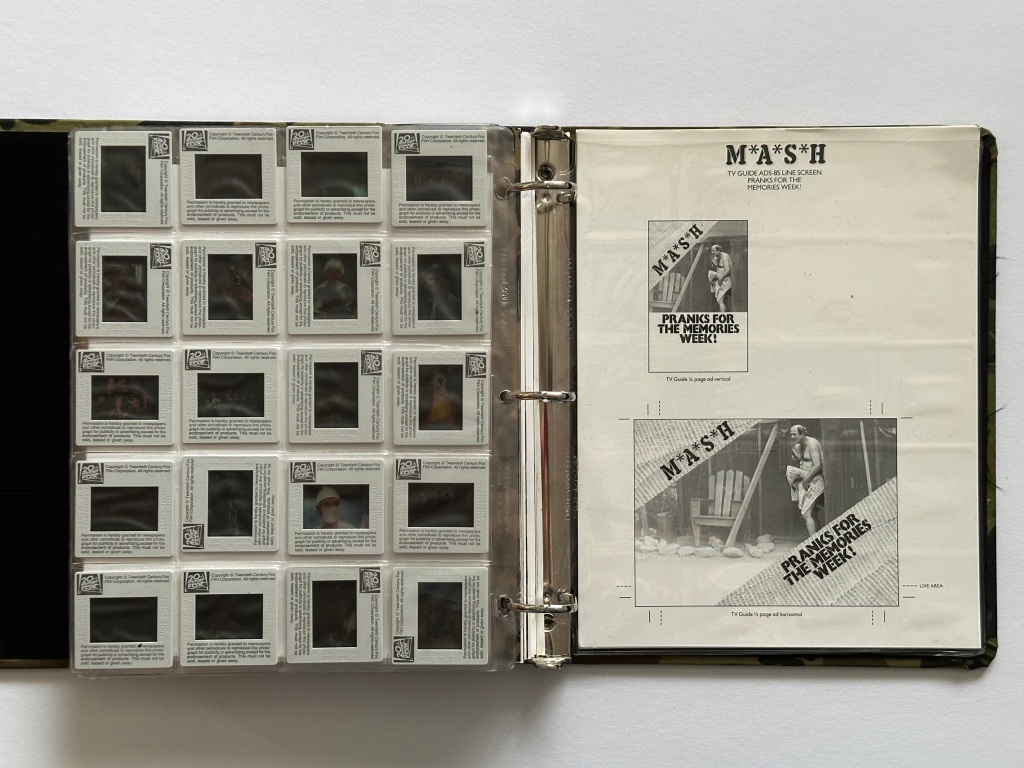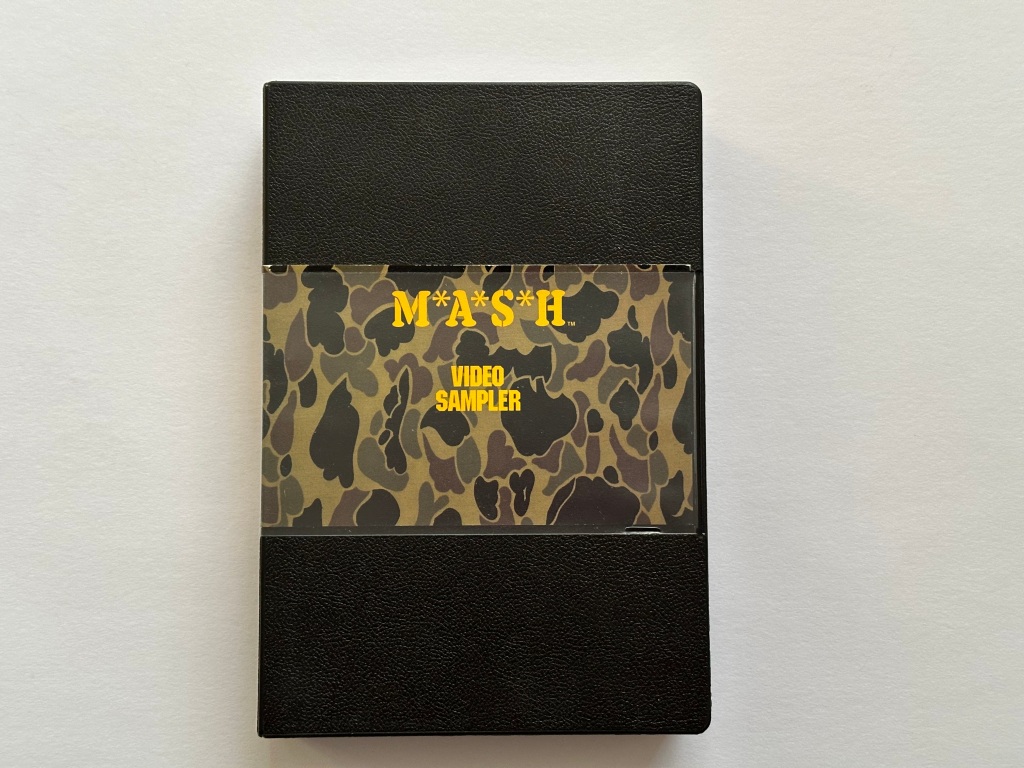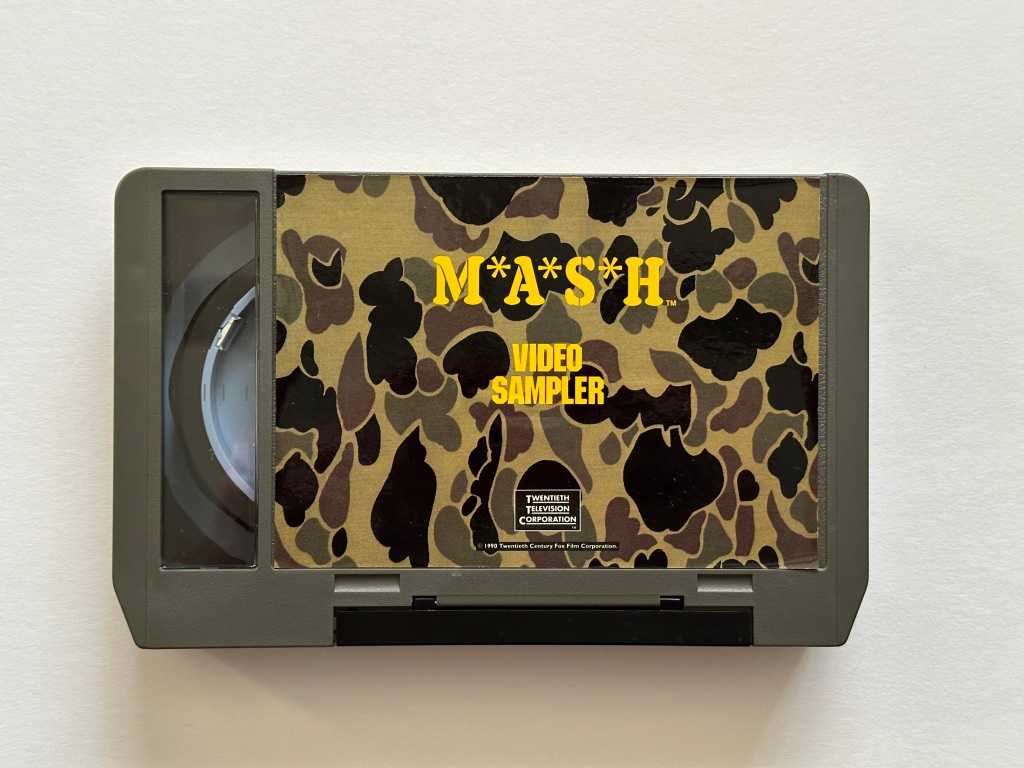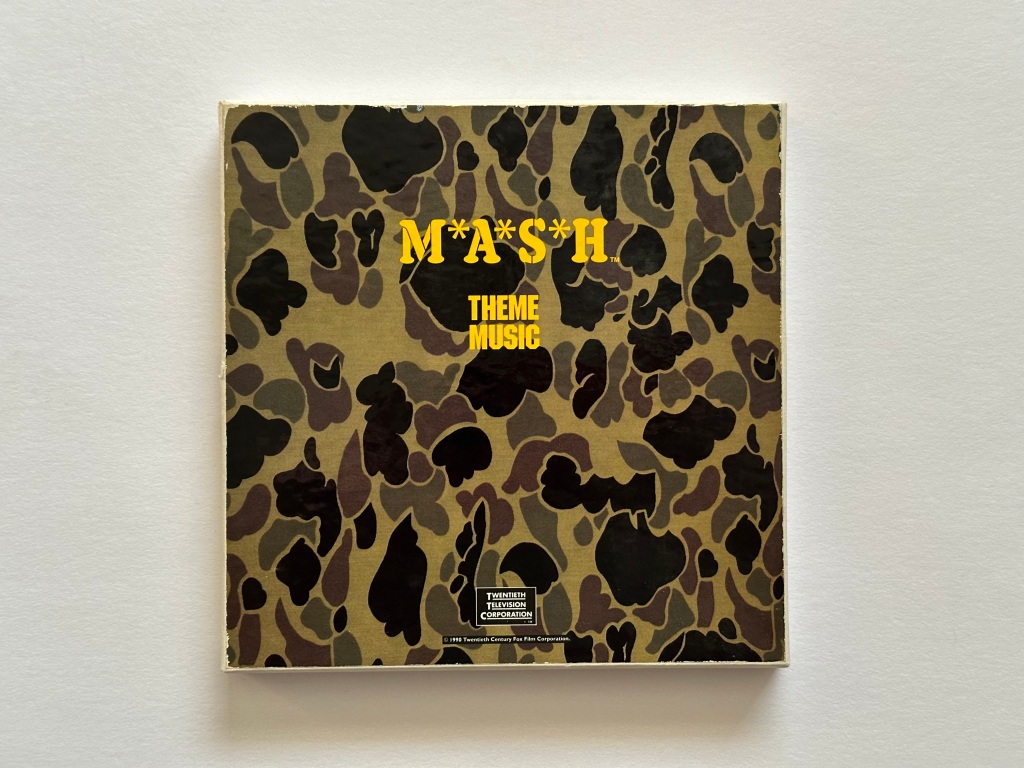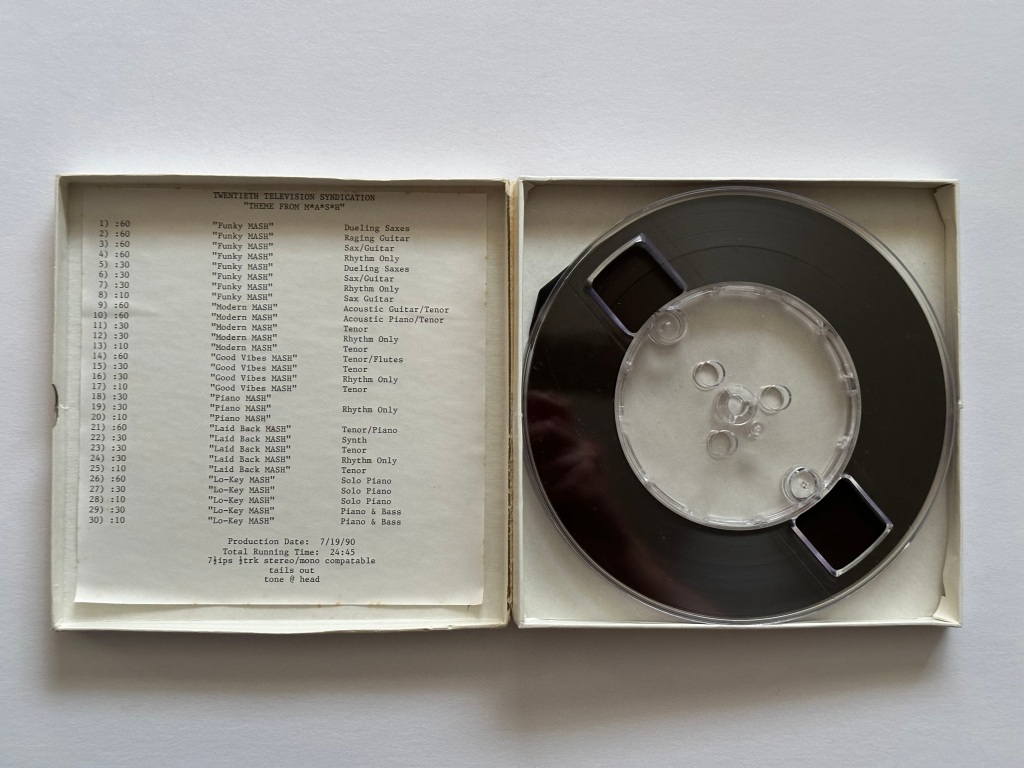In January, I wrote a post about a M*A*S*H syndication kit from the mid-1980s. This week, I am going to feature the other syndication kit that I have in my collection, a kit from 1990. This kit is different as it has more features including more theme week ideas, advertising samples, a video cassette of promos, and an audio reel with several version of the theme song. You can also tell the materials in this kit were designed on computer instead of typewritten and mimeographed for distribution. This syndication kit is beautifully presented. The duffle bag and the cloth covered binders combined with the graphic design of the documentation demonstrates the attention to detail that went into this kit. And that is not surprising since this kit was designed by Dan Harrison, who is a current executive at Fox and has also answered a number of my own questions about M*A*S*H over the years (to learn more about Harrison’s connection to M*A*S*H, listen to Episode 96 of the M*A*S*H Matters podcast). Let’s look at the contents of the 1990 M*A*S*H syndication kit!
Before we open the syndication kit’s duffle bag, I want to briefly discuss M*A*S*H in syndication and how syndication works. There are a number of rules surrounding the rebroadcasting of network television shows. The rules dictated when and where a series could be shown. The first re-run of a series was often on the original network that aired it. However, that is not required. Any television station, regardless of its affiliation, can purchase syndication packages of shows. That is how I watched M*A*S*H on my local ABC affiliate in the 1990s, not CBS. Fox marketed M*A*S*H and other shows it produced in syndication. They would share ratings and other data points to entice stations to buy the series. Popular shows in syndication benefitted both the local station and production company because the local station could compete in its local market (and sell advertising), and the production company profited from the syndication deal. Today, M*A*S*H airs on channels such as TV Land and MeTV thanks to syndication deals.
Duffle Bag and Dog Tags
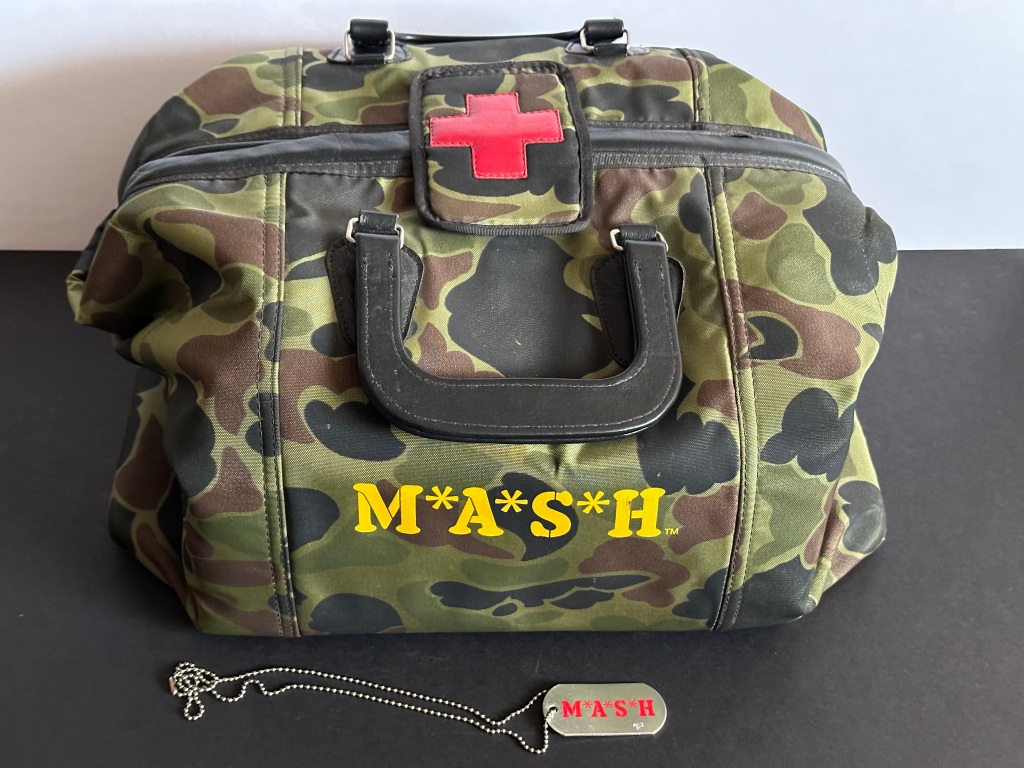
The presentation of this syndication kit is striking. Imagine your station purchased a M*A*S*H syndication deal, and you received this duffle bag. It contained all the goodies you needed to help your station advertise and promote the series in local markets. It also included a few bonus gifts such as the duffle bag itself and a set of M*A*S*H dog tags. The bag is very well constructed, and easily holds all the contents. The kit is very heavy, so the duffle bag had to be strong to handle the weight. This appearing at the station would have been impressive as it was well designed and thought through.
Promotion Survival Guide
Everything was arranged inside the duffle bag in an order that fit, but I am going to try to review each of the contents in a logical order. The first thing is the “Promotion Survival Guide” because it served as an introduction to the contents of the syndication kit. The first page is a welcome letter from Twentieth Television, and that is followed by six sections. The first section is an overview of the kit and what it contains. Then, there is information and strategies on how to promote M*A*S*H locally on television and radio. Next, there is a section about creating tie-in prizes and materials related to M*A*S*H. The fourth section discusses potential contests and special events the station could hold to help promote the series. Then, there’s a section about publicizing the series in the local market. Finally, the survival guide closes with a final message from Twentieth Television and summary. This spiral bound document is essentially “M*A*S*H Marketing 101.” The marketers at Twentieth Television helped the stations get the most out of their purchase.
Synopses
The kit contains two, giant binders with camouflage canvas coverings. The first contains “Synopses” of the series as a whole, each season, and each of the individual episodes. In this binder, all the contents are still sealed in shrink wrap, and I cannot bring myself to open it! You might notice that the cover page says that there are 255 episodes of M*A*S*H and not 251. Both totals are technically correct because there were 251 episodes that originally aired on CBS. However, in syndication, hour-long episodes were broken up in to two half-hour episodes. That increases the total to 255 episodes. This binder would have been an important resource when the station was advertising specific episodes or looking for a specific episode to create theme weeks.
Promotion Materials
The next binder contains “Promotion Materials,” and it expands on what is in the survival guide and gives the station the resources they need. The binder is broken up into sections. The first is a set of fact sheets and production history notes for the series. Then, there is a collection of biographies of the cast and the producers. The next section is M*A*S*H trivia, and this was interesting because it could have been used as promotional material or it could have been used for contests. Next, there is a collection of M*A*S*H theme weeks that contains a collection of five, related episodes that the station could air Monday – Friday as a promotion. An example is “Dear M*A*S*H Week” with five episodes that feature the characters writing home. Then, there are promotional scripts for television or radio advertisements. Finally, at the back of the binder, there is a set of black & white 8″ x 10″ photos, a set of color photo slides, and a set of promotional images for the theme weeks that the station could use in local print media. This binder is a marketers dream!
Video Sampler
The syndication kit contains a “Video Sampler” on a U-Matic cassette tape. I have seen what is on the tape, and there are a few generic promotional commercials for M*A*S*H and several commercials for the theme weeks. There are only a selection of 15 to 30 second ads as the cassette was a sample of what the station could request. Here again, we see Twentieth Television produced commercials that the stations could air. This saved the stations time and money as they didn’t need to add voice over or any other details other than their station information. These were an added value for buying a syndication package, but by providing pre-made materials, Twentieth Television was controlling how M*A*S*H was being marketed.
Theme Music
Finally, there is an audio reel containing 30 different versions of the M*A*S*H theme song, “Suicide is Painless.” The tracks vary in length from ten seconds up to 60 seconds, and the station could have used this audio to underlay television or radio promotions that they wanted to make themselves. Having music was especially important for radio advertising as the station could promote M*A*S*H using the theme from the show. Having multiple versions of the theme song, including versions that were up-beat and others that were more low-key, would help set the mood of the promotional spots.
Miscellaneous
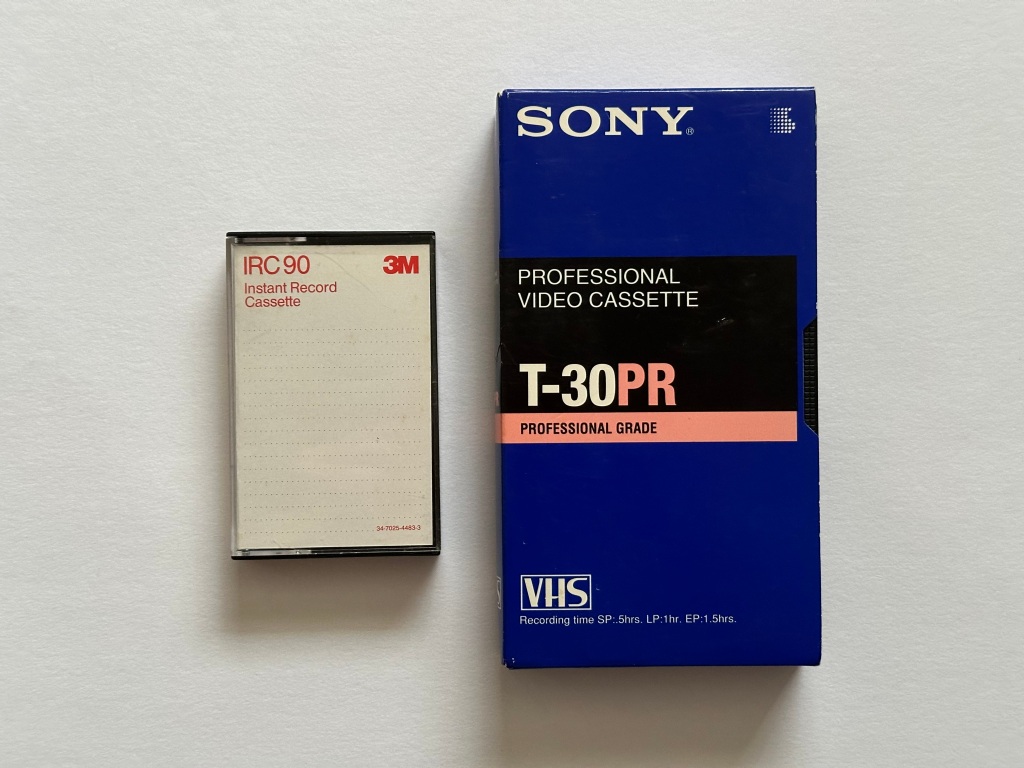
As a bonus, there are two objects it the kit that did not come from Fox. The station that received this kit transferred the U-Matic cassette to a VHS tape, and they transferred the audio reel to an audio cassette tape. This has been great as it has enabled me to watch the promos and listen to the audio. I remember watching the all of the promotional spots on this VHS on my local ABC station in the 1990s. It was a real surprise, and nostalgia trip, getting to see the vintage M*A*S*H commercials.
When this kit was sent to a local television station in the early 1990s, I am sure they never expected it to still be intact in 2024. The fact that the kit has stayed together, and there are still parts of it in shrink wrap, is impressive. M*A*S*H in syndication was so important to fans of the series then, and continues to be important to fans today. There are millennial and Gen Z fans of the series who fell in love with it because they watched it in syndication with their parents or grandparents. This would not have been possible without the syndication deals of the late 1980 and 1990s. This kit was more than just a companion to the syndication package a local station purchased, it is a full marketing companion for local television stations. It is a unique piece of M*A*S*H history, and I am glad it is in my collection.

